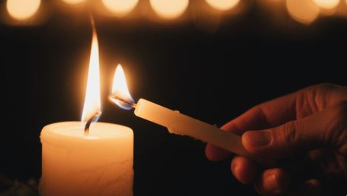“Most important of all, continue to show deep love for each other, for love covers a multitude of sins.” — 1 Peter 4:8
A Verse That Cuts Through the Noise
You don’t have to go far to see how messy life can get—arguments, misunderstandings, grudges that quietly fester. Relationships, even the good ones, are hard. And maybe that’s part of why Peter’s words hit home. In 1 Peter 4:8, we’re told to keep showing “deep love” because it covers a multitude of sins. It’s a simple sentence with a lot going on under the surface.
The phrase might sound poetic at first, but it’s more than a nice line. Peter isn’t just tossing out inspirational advice. He’s writing to believers facing tension, pressure, and even persecution. His message? Love isn’t optional—it’s essential. Not just any love, though. He calls for a kind of love that stretches, bears weight, and doesn’t give up easily. The Greek word ektenēs, translated here as “deep,” carries that idea of being stretched tight—like a rope pulled to its limit.
So, why does that kind of love matter so much?
Not About Hiding Sin—But Choosing Grace
Some people might misunderstand this verse and assume it means love ignores or hides sin. That’s not quite the idea. Peter’s not suggesting we sweep wrongs under the rug. Instead, the image is more like a blanket—love covers, not to conceal, but to protect, to restore, to bring warmth where coldness once lived.
There’s a similar line in Proverbs 10:12: “Hatred stirs up strife, but love covers all sins.” It’s not about denial; it’s about direction. Hatred stirs the pot. Love says, “Let’s move forward.”
This isn’t easy. Let’s be honest—it can be incredibly hard to love someone who has wounded us. But that’s where this verse starts to breathe. It’s not cheap or passive love. It’s the kind that takes effort, especially when the situation screams for revenge or silence.

Joseph’s Story: Love That Could Have Gone Another Way
Think about Joseph in Genesis. If anyone had a right to stay angry, it was him. His own brothers sold him into slavery, and he spent years in prison for something he didn’t do. When he finally rose to power in Egypt and had the chance to confront them, he didn’t lash out. Instead, he wept, forgave, and embraced them.
That choice? That’s what Peter’s talking about.
Joseph’s love didn’t erase what happened, but it covered the offense in such a way that healing was possible. He said, “You meant evil against me, but God meant it for good.” That line still challenges me every time I read it.

Jesus and the Woman Caught in Sin
Then there’s Jesus and the woman in John 8—the one caught in adultery. People were ready to stone her. Jesus stepped in, not with denial or blame-shifting, but with calm, sobering words: “Let the one without sin throw the first stone.” Slowly, the crowd disappeared.
Jesus didn’t excuse her sin. He also didn’t humiliate her. Instead, He showed her a way out: “Go and sin no more.” Grace before correction. Love before law.
And maybe that’s the order we keep forgetting.

The Kind of Love That Builds Community
If you’ve ever been part of a close-knit church, family, or even a small team, you probably know how fragile those communities can be. A small offense, a poorly worded message, or a moment of frustration can easily grow into resentment if not dealt with.
Peter knew this. That’s why he didn’t say, “Love each other occasionally when it feels right.” He said continue to love deeply. Keep doing it. Keep choosing it. Because without that kind of love, things start falling apart.
Paul made a similar point in Colossians 3:14: “Above all, put on love, which binds everything together in perfect harmony.” Love isn’t just a soft thing—it’s the glue that holds us together.
Love Isn’t Always Easy, But It’s Always Worth It
Here’s the part that’s easy to skip over: this kind of love takes work. And some days, it’s the last thing we want to do. Forgiveness is rarely neat, and grace is often costly. But Peter’s not calling us to comfort—he’s calling us to character.
Will we always get it right? Probably not. But the good news is, we’re not asked to love perfectly—we’re just asked to keep trying. To keep showing up. To keep choosing the path that leads to peace, even when the road is uphill.
1 Peter 4:8 doesn’t offer a shortcut, but it does offer hope. In a world where people are quick to cancel, criticize, and walk away, this verse invites us to stick around, love deeply, and cover what we can—not to hide, but to heal.

